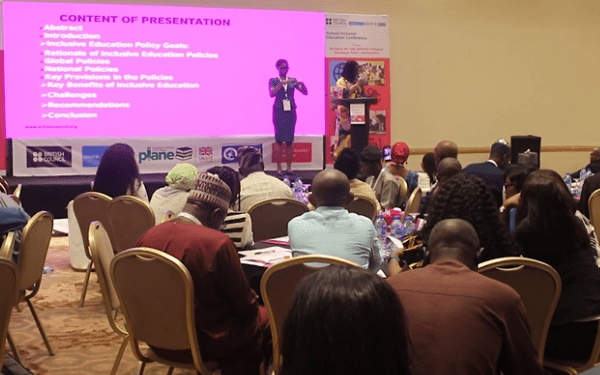
FG to unveil national policy against bullying in Nigerian schools
- Education
- No Comment
- 233

The Federal Government has announced plans to launch a national policy to address bullying and other vices in Nigerian schools.
This was disclosed by the Minister of Education, Dr. Tunji Alausa, during a news conference held in Abuja on Wednesday, following reports of bullying incidents circulating on social media.
Dr. Alausa announced that the ministry is working closely with the Ministry of Justice to create the policy, which will be presented to the National Council of Education (NCE) for adoption. He said,
“The Federal Ministry of Education will be working with the Attorney General’s Office to quickly come up with that policy, and we can take this to the National Council of Education (NCE). This will be for adoption as part of our process to address bullying and discipline in our societies.”
The minister revealed that the policy would include a comprehensive review of strategies to curb bullying and other vices and is expected to roll out by early 2025.
Focus on Safe Schools Act
Speaking at a news conference in Abuja on Wednesday, Dr. Alausa disclosed that the ministry had invited 125 Unity college principals to deliberate on the Safe Schools Act and anti-bullying strategies.
He emphasized the importance of fostering a safe and disciplined environment in schools, stating:
“The Nigerian secondary school system is meant to be a place where students acquire not just academic knowledge but also values, discipline, and life skills. Unfortunately, increasing cases of bullying, violence, cultism, substance abuse, and other vices are undermining the sanctity of our educational institutions.”
Alausa noted that these issues have contributed to declining academic performance, mental health challenges, and the erosion of moral values.
Government’s zero-tolerance for bullying
Alausa reiterated President Bola Tinubu’s administration’s zero-tolerance for bullying and its commitment to ensuring a safe educational environment for all students. He stated:
“We’re going to do everything possible to ensure that our children get the highest quality of education, from basic to post-basic and tertiary education.
As they get this education, we’re also inculcating discipline and ethical moral values in them,” he stated.
“Any principal or teacher that tries to cover up acts of bullying will also be held accountable,” he said.
Call for accountability
The Solicitor General of the Federal Ministry of Justice, Jeddy Agba, attributed the prevalence of bullying to weak monitoring and accountability systems in schools. She called for strict enforcement of the forthcoming policy, stating:
What you should know
In 2021, the Federal Ministry of Education introduced the National Policy on Safety, Security, and Violence-Free Schools in Nigeria to address violence and ensure the safety of students.
- The policy defines bullying as repeated behavior intended to cause physical, verbal, or psychological harm, often involving a power imbalance.
- It promotes a zero-tolerance approach to threats such as bullying, drug abuse, violence, gang activity, and attacks on schools due to conflict or other disasters.
- However, despite its comprehensive framework, the policy remains underutilized. Awareness among school administrators is low, and its full implementation and adoption have yet to be realized.
Recent research indicates that over 50% of Nigerian adolescents have experienced bullying, with most incidents occurring in classrooms and involving classmates. Prevalence rates reported range from 16.3% to nearly 60%, reflecting ongoing challenges despite efforts to address the issue.
By Rosalia Ozibo
FG to unveil national policy against bullying in Nigerian schools





